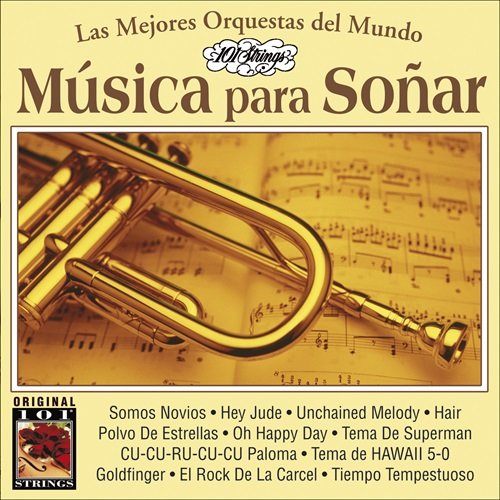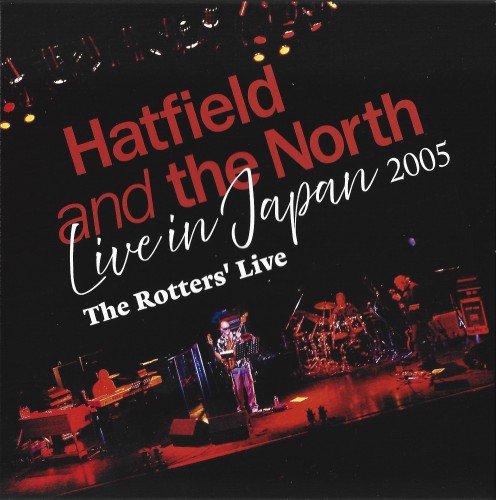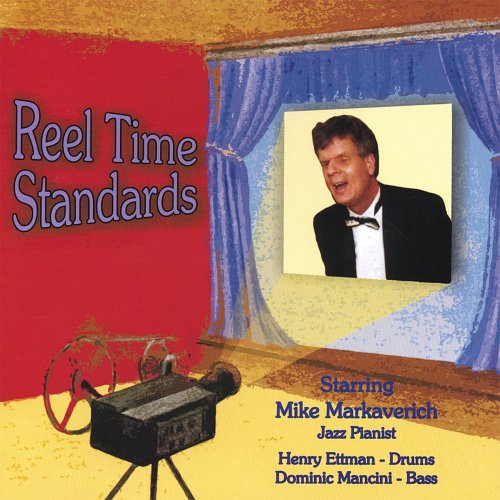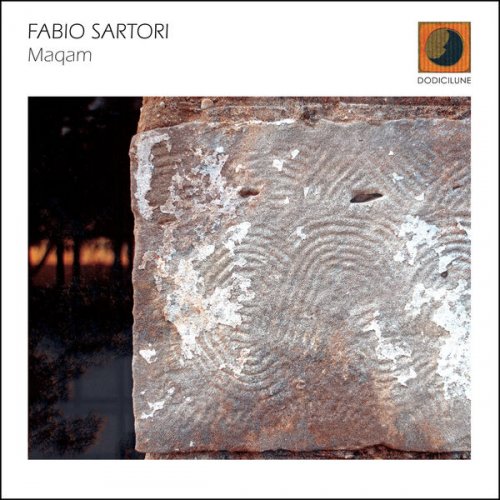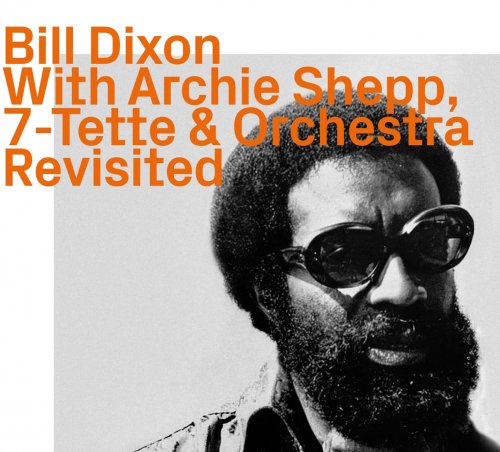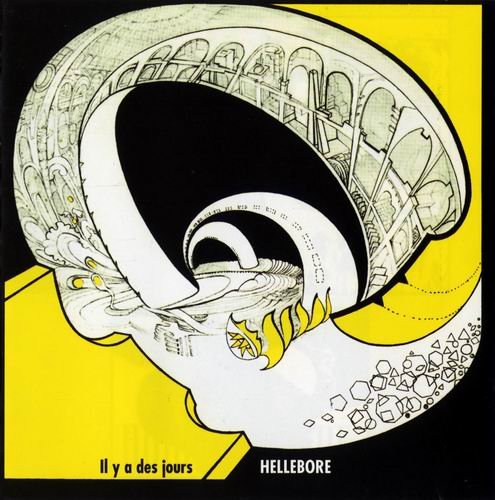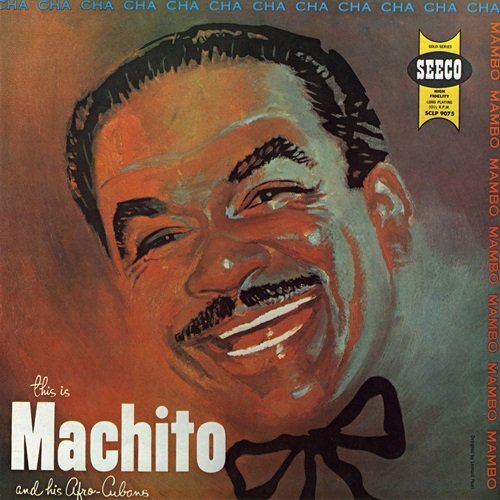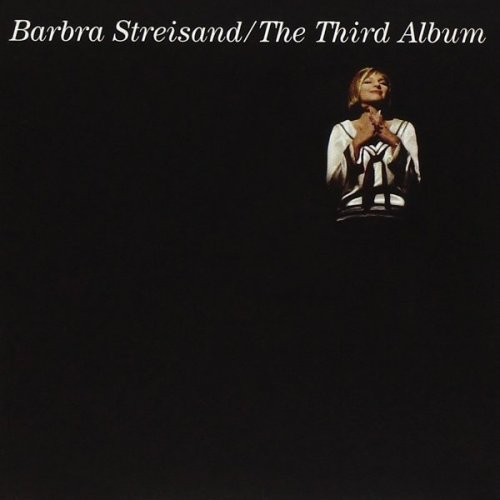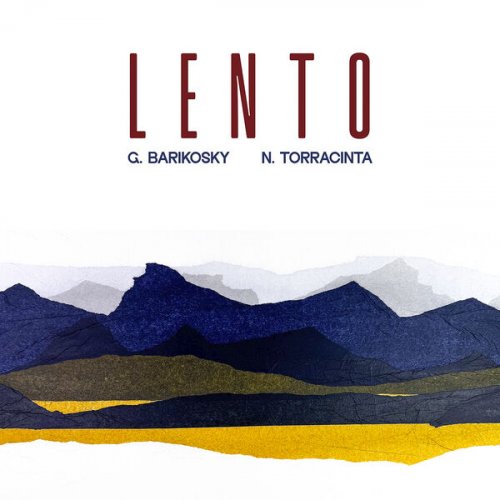Gerd Albrecht - Dvorák: Svatá Ludmila (1999)
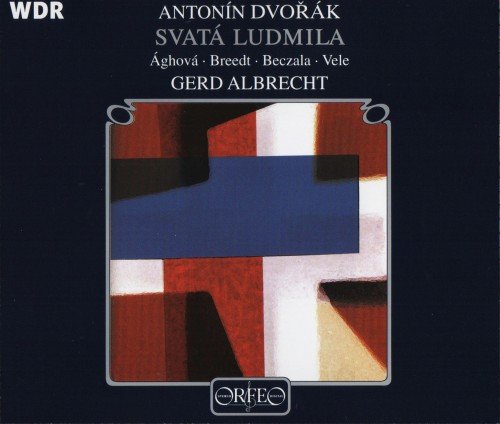
Artist: Gerd Albrecht
Title: Dvorák: Svatá Ludmila
Year Of Release: 1999
Label: Orfeo International Music
Genre: Classical
Quality: FLAC (image + .cue, log, artwork)
Total Time: 02:23:56
Total Size: 597 MB
WebSite: Album Preview
Tracklist:Title: Dvorák: Svatá Ludmila
Year Of Release: 1999
Label: Orfeo International Music
Genre: Classical
Quality: FLAC (image + .cue, log, artwork)
Total Time: 02:23:56
Total Size: 597 MB
WebSite: Album Preview
CD 1
01. Saint Ludmilla, oratorio for solists, chrous & orchestra, B. 144 (Op. 71): Part 1: 'The dusk departs to gloomy caves and forests'
02. Saint Ludmilla, oratorio for solists, chrous & orchestra, B. 144 (Op. 71): Part 1: 'Merry Spring time...'
03. Saint Ludmilla, oratorio for solists, chrous & orchestra, B. 144 (Op. 71): Part 1: 'Blossoms with which Spring allures us...'
04. Saint Ludmilla, oratorio for solists, chrous & orchestra, B. 144 (Op. 71): Part 1: 'Holy dawn and holy night alike are dusky...'
05. Saint Ludmilla, oratorio for solists, chrous & orchestra, B. 144 (Op. 71): Part 1: 'Triglav, thou with threefold countenance'
06. Saint Ludmilla, oratorio for solists, chrous & orchestra, B. 144 (Op. 71): Part 1: 'My heart is beating wildly for today.'
07. Saint Ludmilla, oratorio for solists, chrous & orchestra, B. 144 (Op. 71): Part 1: 'Hear when we sing our psalm...'
08. Saint Ludmilla, oratorio for solists, chrous & orchestra, B. 144 (Op. 71): Part 1: 'When young it was the altar'
09. Saint Ludmilla, oratorio for solists, chrous & orchestra, B. 144 (Op. 71): Part 1: 'The gods are close are hand...'
10. Saint Ludmilla, oratorio for solists, chrous & orchestra, B. 144 (Op. 71): Part 1: 'Festoon with flowers gay'
11. Saint Ludmilla, oratorio for solists, chrous & orchestra, B. 144 (Op. 71): Part 1: 'What causes all that noise?'
12. Saint Ludmilla, oratorio for solists, chrous & orchestra, B. 144 (Op. 71): Part 1: 'Now kiss the dust, all!'
13. Saint Ludmilla, oratorio for solists, chrous & orchestra, B. 144 (Op. 71): Part 1: 'What man is this whom lightning will not fell?'
14. Saint Ludmilla, oratorio for solists, chrous & orchestra, B. 144 (Op. 71): Part 1: 'I beg thee, on thy dusty feet...'
15. Saint Ludmilla, oratorio for solists, chrous & orchestra, B. 144 (Op. 71): Part 1: 'Upon this earth...'
16. Saint Ludmilla, oratorio for solists, chrous & orchestra, B. 144 (Op. 71): Part 1: 'What will befall us, in the time approaching?'
17. Saint Ludmilla, oratorio for solists, chrous & orchestra, B. 144 (Op. 71): Part 1: 'Now everything is crumbling, all is chaos...'
18. Saint Ludmilla, oratorio for solists, chrous & orchestra, B. 144 (Op. 71): Part 2: 'Oh, in the fearful forest shadows...'
CD 2
01. Saint Ludmilla, oratorio for solists, chrous & orchestra, B. 144 (Op. 71): Part 2: 'Pray tell me now, what do you seek?'
02. Saint Ludmilla, oratorio for solists, chrous & orchestra, B. 144 (Op. 71): Part 2: 'No error made I, I welcome you, daughter!'
03. Saint Ludmilla, oratorio for solists, chrous & orchestra, B. 144 (Op. 71): Part 2: 'Thanks, Father, I felt sure I was right.'
04. Saint Ludmilla, oratorio for solists, chrous & orchestra, B. 144 (Op. 71): Part 2: 'First you should learn...'
05. Saint Ludmilla, oratorio for solists, chrous & orchestra, B. 144 (Op. 71): Part 2: 'Oh tell me, for humility I long now...'
06. Saint Ludmilla, oratorio for solists, chrous & orchestra, B. 144 (Op. 71): Part 2: 'All hail, great Cross, that bears our weight of s
07. Saint Ludmilla, oratorio for solists, chrous & orchestra, B. 144 (Op. 71): Part 2: 'Gaily we pass through field and through forest'
08. Saint Ludmilla, oratorio for solists, chrous & orchestra, B. 144 (Op. 71): Part 2: 'Oh, what a sight there in the shadows...'
09. Saint Ludmilla, oratorio for solists, chrous & orchestra, B. 144 (Op. 71): Part 2: 'I lead the lost souls out of darkness'
10. Saint Ludmilla, oratorio for solists, chrous & orchestra, B. 144 (Op. 71): Part 2: 'I think the truth I now infer'
11. Saint Ludmilla, oratorio for solists, chrous & orchestra, B. 144 (Op. 71): Part 2: 'Oh, show to me the way that I must win her'
12. Saint Ludmilla, oratorio for solists, chrous & orchestra, B. 144 (Op. 71): Part 2: 'Oh, look there, see our Prince upon his knees'
13. Saint Ludmilla, oratorio for solists, chrous & orchestra, B. 144 (Op. 71): Part 2: 'How is it possible to raise my eyelids'
14. Saint Ludmilla, oratorio for solists, chrous & orchestra, B. 144 (Op. 71): Part 2: 'Oh, heavens! Oh heavens!'
15. Saint Ludmilla, oratorio for solists, chrous & orchestra, B. 144 (Op. 71): Part 2: 'I rudely awake from a perfect dream'
16. Saint Ludmilla, oratorio for solists, chrous & orchestra, B. 144 (Op. 71): Part 2: 'For this new shining dawn I am now searching'
17. Saint Ludmilla, oratorio for solists, chrous & orchestra, B. 144 (Op. 71): Part 3: 'Mighty Lord, have mercy on us!'
18. Saint Ludmilla, oratorio for solists, chrous & orchestra, B. 144 (Op. 71): Part 3: 'Come forward all to whom I've taught the new cree
19. Saint Ludmilla, oratorio for solists, chrous & orchestra, B. 144 (Op. 71): Part 3: 'Anoint our foreheads with the holy water'
20. Saint Ludmilla, oratorio for solists, chrous & orchestra, B. 144 (Op. 71): Part 3: 'So both of you will kneel before Methodius...'
21. Saint Ludmilla, oratorio for solists, chrous & orchestra, B. 144 (Op. 71): Part 3: 'Holy Ghost in royal purple'
22. Saint Ludmilla, oratorio for solists, chrous & orchestra, B. 144 (Op. 71): Part 3: 'O let the heavens echo with our anthem'
23. Saint Ludmilla, oratorio for solists, chrous & orchestra, B. 144 (Op. 71): Part 3: 'Virgin mother of our Saviour'
24. Saint Ludmilla, oratorio for solists, chrous & orchestra, B. 144 (Op. 71): Part 3: 'Now let the heaven echo with our anthem'
25. Saint Ludmilla, oratorio for solists, chrous & orchestra, B. 144 (Op. 71): Part 3: 'Mighty Lord, have mercy on us!'
Gerd Albrecht was a leading German conductor. He was best known for his interpretations of late Romantic and 20th century German repertory.
His father was Hans Albrecht (1902-1961), a well-known musicologist. He was a choral scholar at the age of 15 and began conducting when he was 16. He studied at the Hamburg Musikhochschule (Hamburg Music Academy) from 1955 to 1958. There his conducting teacher was Hans Brückner-Rüggeberg. He also studied musicology, philosophy, and the science of art in Hamburg and Kiel Universities.
In 1957, he won the prize at the International Young Conductors Competition at Besançon, and in 1958 the Hilversum Conductors Competition. This led to his appointment in 1958 as a choir rehearsal director at the Stuttgart State Opera in 1958, a typical entry-level position for talented young conductors in Germany, where there are numerous state-supported opera houses. In 1961, Albrecht became Principal Conductor of the Mainz City Opera until 1963.
This was the beginning of steady advancement through the ranks of opera chief conductors in Germany. He was successively Music Director of the Buhnen Lübeck (1962-1966) -- the youngest German conductor of that house --and the Kassel Staatsoper (Music Director, 1966-1972) and in 1972 was appointed Principal Conductor of the Berlin Deutsche Opera, West Berlin's opera house and one of the leading operatic venues in Germany, succeeding Lorin Maazel.
While at Kassel, he began presenting TV broadcasts intended to acquaint young and old with classical and operatic music. He continued this practice in his later posts. In 1974, Albrecht received the German Television Grimm Prize for his achievements in children's broadcasting, and for devising and establishing "Instrument Museums" where children can learn about musical instruments.
In 1975, in addition to his position in Berlin, he became the Principal Conductor of the Tonhalle-Orchestra of Zurich, a leading Swiss ensemble, succeeding Rudolf Kempe. In both Zurich and Berlin, he became known as an exacting conductor who would call for additional rehearsals when needed, as in the case of a Mahler's Third Symphony performance in Zurich that required twelve rehearsals.
He left the Berlin Deutsche Opera in 1977 and the Tonhalle in 1980. During this period, he guest conducted widely. He became well known for reviving the music of Romantic German composers Ludwig Spohr, Hans Zemlinsky, and Max Reger, and for performances of music of Schumann and Dvorák and other Romantic masters. He also became associated with the leading German and Austrian composers of the first part of the twentieth century (Schoenberg, Berg, Webern, and Hindemith), the composers Viktor Ullman, Gideon Klein, and Pavel Haas (all of whom where murdered in Nazi death camps), and more recent composers such as Fortner, Ligeti, Reimann, Penderecki, and Schnittke, many of whose works he premiered either at Berlin or in his later position as Music Director of the Hamburg State Opera and Philharmonic State Opera of Hamburg (1888-1997).
In 1993, the Czech Philharmonic, Prague's leading orchestra, having reorganized itself as a self-governing orchestra, voted by an overwhelming majority to engage Albrecht as their Principal Conductor. He took up that post in September 1993. However, his position as the first German conductor of that orchestra was widely attacked in the newspapers and in political circles, leading Albrecht to resign, leaving in January 1996.
In 1998, he took up the position of Principal Conductor of the Yomiuri Nippon Symphony Orchestra, and at the start of the 2000 season, Chief conductor of the Danish National Radio Symphony Orchestra. He held these posts until 2007 and 2004 respectively.
Albrecht won numerous prizes and recognition for his conducting, television productions, and writings, which included books on music and collections of fairy tales for children. -- Joseph Stevenson
His father was Hans Albrecht (1902-1961), a well-known musicologist. He was a choral scholar at the age of 15 and began conducting when he was 16. He studied at the Hamburg Musikhochschule (Hamburg Music Academy) from 1955 to 1958. There his conducting teacher was Hans Brückner-Rüggeberg. He also studied musicology, philosophy, and the science of art in Hamburg and Kiel Universities.
In 1957, he won the prize at the International Young Conductors Competition at Besançon, and in 1958 the Hilversum Conductors Competition. This led to his appointment in 1958 as a choir rehearsal director at the Stuttgart State Opera in 1958, a typical entry-level position for talented young conductors in Germany, where there are numerous state-supported opera houses. In 1961, Albrecht became Principal Conductor of the Mainz City Opera until 1963.
This was the beginning of steady advancement through the ranks of opera chief conductors in Germany. He was successively Music Director of the Buhnen Lübeck (1962-1966) -- the youngest German conductor of that house --and the Kassel Staatsoper (Music Director, 1966-1972) and in 1972 was appointed Principal Conductor of the Berlin Deutsche Opera, West Berlin's opera house and one of the leading operatic venues in Germany, succeeding Lorin Maazel.
While at Kassel, he began presenting TV broadcasts intended to acquaint young and old with classical and operatic music. He continued this practice in his later posts. In 1974, Albrecht received the German Television Grimm Prize for his achievements in children's broadcasting, and for devising and establishing "Instrument Museums" where children can learn about musical instruments.
In 1975, in addition to his position in Berlin, he became the Principal Conductor of the Tonhalle-Orchestra of Zurich, a leading Swiss ensemble, succeeding Rudolf Kempe. In both Zurich and Berlin, he became known as an exacting conductor who would call for additional rehearsals when needed, as in the case of a Mahler's Third Symphony performance in Zurich that required twelve rehearsals.
He left the Berlin Deutsche Opera in 1977 and the Tonhalle in 1980. During this period, he guest conducted widely. He became well known for reviving the music of Romantic German composers Ludwig Spohr, Hans Zemlinsky, and Max Reger, and for performances of music of Schumann and Dvorák and other Romantic masters. He also became associated with the leading German and Austrian composers of the first part of the twentieth century (Schoenberg, Berg, Webern, and Hindemith), the composers Viktor Ullman, Gideon Klein, and Pavel Haas (all of whom where murdered in Nazi death camps), and more recent composers such as Fortner, Ligeti, Reimann, Penderecki, and Schnittke, many of whose works he premiered either at Berlin or in his later position as Music Director of the Hamburg State Opera and Philharmonic State Opera of Hamburg (1888-1997).
In 1993, the Czech Philharmonic, Prague's leading orchestra, having reorganized itself as a self-governing orchestra, voted by an overwhelming majority to engage Albrecht as their Principal Conductor. He took up that post in September 1993. However, his position as the first German conductor of that orchestra was widely attacked in the newspapers and in political circles, leading Albrecht to resign, leaving in January 1996.
In 1998, he took up the position of Principal Conductor of the Yomiuri Nippon Symphony Orchestra, and at the start of the 2000 season, Chief conductor of the Danish National Radio Symphony Orchestra. He held these posts until 2007 and 2004 respectively.
Albrecht won numerous prizes and recognition for his conducting, television productions, and writings, which included books on music and collections of fairy tales for children. -- Joseph Stevenson
